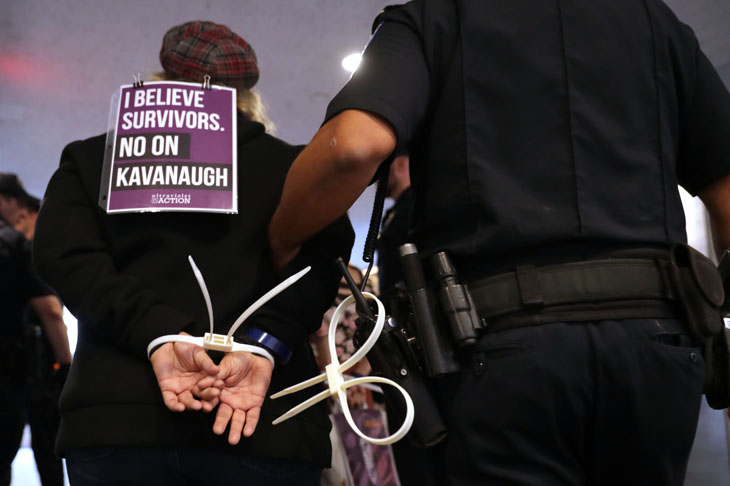‘There are two sides to every story’ is an aphorism you don’t hear often lately. Ask anyone amidst a family row: most stories have more than two sides. But in the take-no-prisoners world of #MeToo, there’s only one side. All women are victims and all women are truthful. Any man who’s had a shadow of doubt cast on his sexual behaviour since his first wet dream at 12 is deserving of permanent social and professional banishment and is forever forbidden from saying a word in his own defence.
As the editor-in-chief of the respected New York Review of Books found out. Ostensibly Ian Buruma resigned, but resignation over your own dead body sounds awfully like ‘sacked’ to me. His fatal error, according to the usual Twits? No, not sticking a hand up a staffer’s dress. In the Review’s most recent issue, he published an essay by the disgraced Canadian DJ Jian Ghomeshi, who described what it was like being on the receiving end of those pointing female fingers.
By coincidence, Harper’s magazine is running a contemporaneous essay by the former public radio presenter John Hocken-berry, whose career and personal life have also been destroyed by accusations of sexual impropriety. I recommend both essays, if only as rare examples of purported bad boys telling their side of stories we’ve hitherto been told have only one side.
The essays have been criticised for being poorly written, and I’m heartened that their detractors suddenly care so much about literary quality. Me, I’d not call either a masterpiece, but they’re readable and informative — indeed, often more revealing than their authors intend. Besides, Harper’s publisher Rick MacArthur tells me that finding anyone willing to write about being persecuted over perceived sexual misconduct was fiendishly difficult, so brilliant competing manuscripts were hardly crowding his inbox.









Comments
Join the debate for just £1 a month
Be part of the conversation with other Spectator readers by getting your first three months for £3.
UNLOCK ACCESS Just £1 a monthAlready a subscriber? Log in